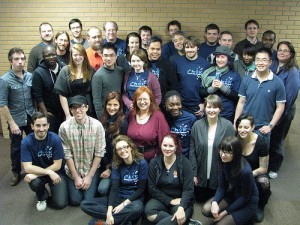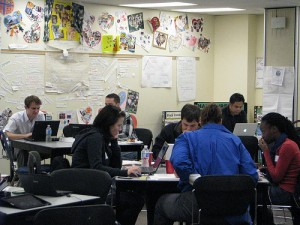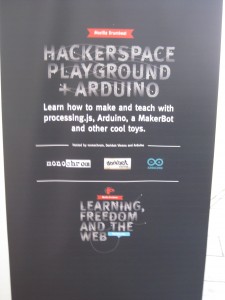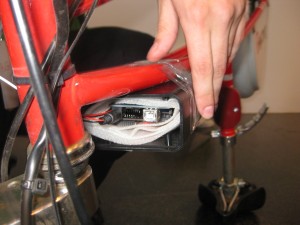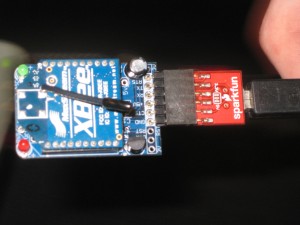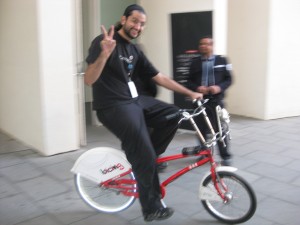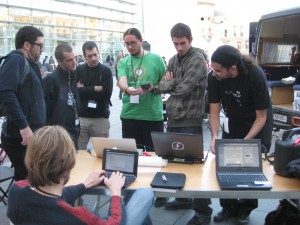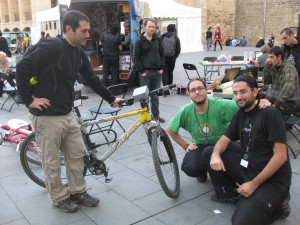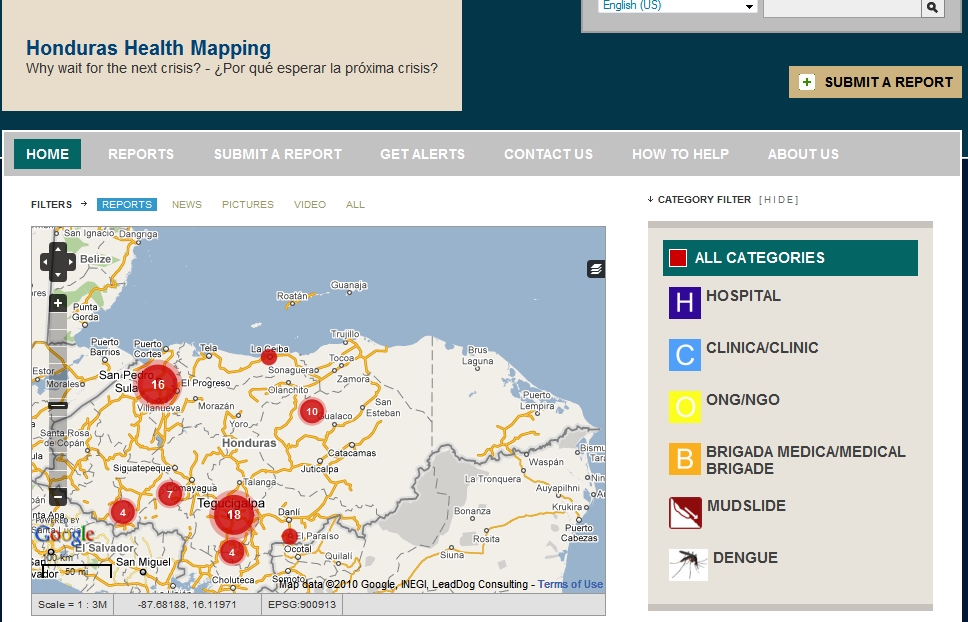Bushfire Connect is a project to help Australians crowdsource reports about bushfires. The Australian bushfire season is during December and January. The Bushfire Connect team is monitoring the current bushfires on their Twitter account: @bushfireconnect.
They need help testing their Ushahidi site. In June 2010 for Random Hacks of Kindness 1.0 in June 2010 (Sydney, Australia), I had the opportunity to meet these dedicated volunteers. The project continues to evolve and will be launching soon.
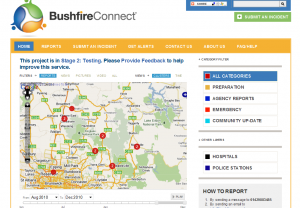
Keren Flavell, Initiator and Online Media Producer and Anthony Joseph, Developer on Bushfire Connect:
What is it?
Bushfire Connect is an online bushfire crisis service presenting real time information submitted by local community members and emergency agencies. Our goal is to establish a reliable, dynamic and timely resources for people in fire threatened or damaged areas to enhance and extend the utility of official data sources.
The service has been developed using the ground-breaking Ushahidi platform, a geo-spatial communication system implemented after disasters in Haiti, Chile and, most recently, Pakistan.
Who is behind it?
Establishing this tool here in Australia in preparation for the bushfire season has been the mission of a small team of volunteers from a range of backgrounds. Spatial information strategist, Maurits van der Llugt, teamed with online media producer, Keren Flavell, to initially kick start the project. Once it was worked on intensively at Random Hacks of Kindness, technical experts Daniela Fernandez and Anthony Joseph continued to work on the project. ICT strategist and Drumbeat Australia organiser, Vicky Pinpin-Feinstein, has joined the team as an advisor.
Where are we at now?
The project took shape after the Random Hacks of Kindness event in Sydney, where the first installation was deployed. Since then, the project has continued to be refined to include features such as submitting reports by SMS and registering to receive alerts in specific geographic regions.
We are in discussions with emergency agencies and media organisations about potential partnerships. A not-for-profit is being established to receive funds for further development and to keep the project independent from any single agency or organisation.
What do we need?
Bushfire Connect needs to funding and partners in order to create a robust and effective tool for community driven crisis alerts during the bushfire season.
We are looking to raise funds for the pilot testing and fire season preparation phases of development.
Next Steps?
The service is now ready for pilot testing by the community. We want to refining the user experience by reviewing icons and wording of the current site. There needs to be load testing of the servers and appropriate server enhancements to deal with high demand. We also need to build a volunteer moderation taskforce through recruitment and training.
Further Information
The Ushahidi blog featured their work in October.
Canadian forest fires
Wildfires, bushfires, and forest fires are a global problem. Using crowdsourcing, there is an opportunity to use technology to make a difference. What if all the lessons learned from each of these projects were used to build one simulator and one pattern for any country or region to use?
I grew up in northern Canada where forest fires are a large problem. Learning about Bushfire Connect while attending RHoK 1.0 in Sydney and monitoring the Ushahidi work that the Russian wildfire team did inspires me. Someday we will bring this technology and crowdsourcing to the Canadian north. All we need is a mobile phone (SMS) plan, an Ushahidi server install and a team of people to work with Canadian authorities to make it happen.
